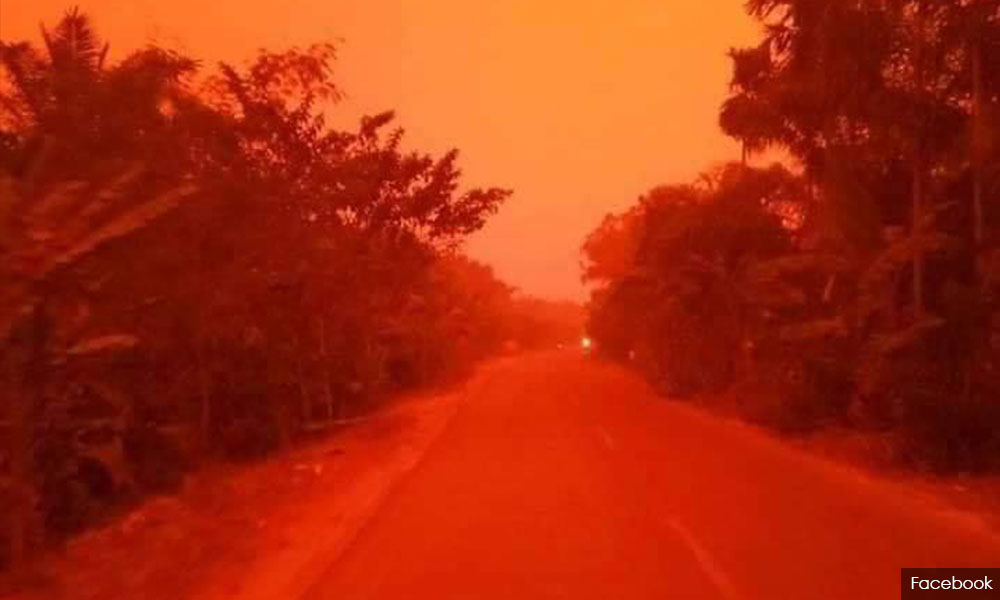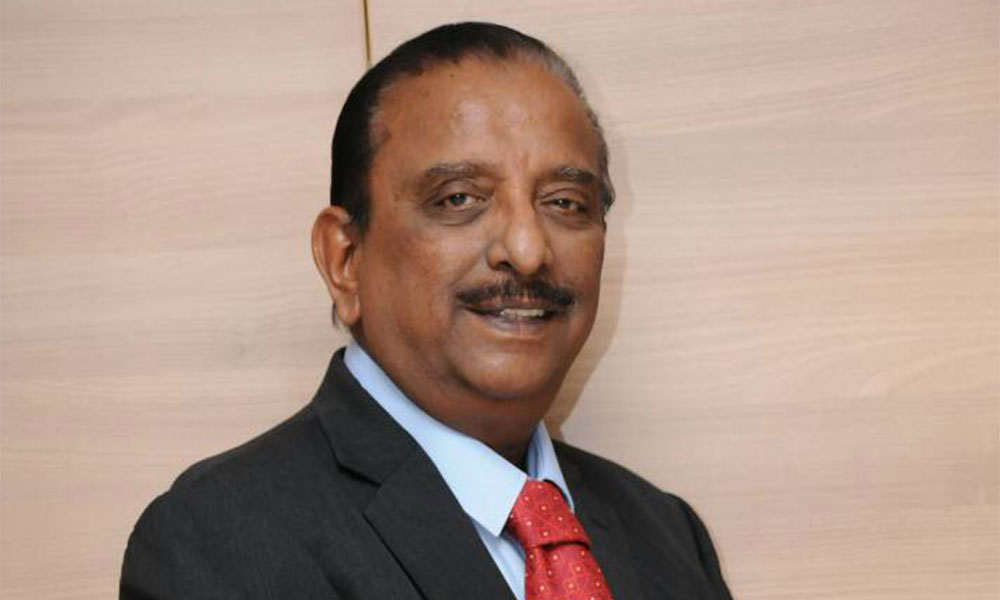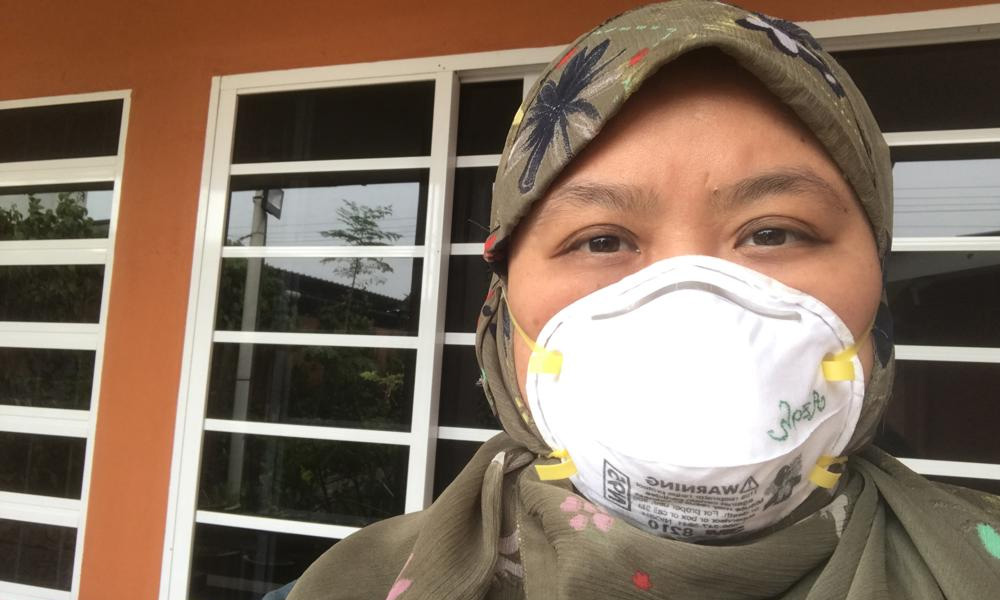
The past couple of days have seen a return to moderate air quality with only one station at Johan Setia, Klang, registering unhealthy API levels.
However, Malaysian Medical Association president Dr N Ganabaskaran says Malaysians should not stop pressing the government to act just because it appears that the worst of the haze is over for now.
“The monsoon rains are expected this week, and Malaysians are expecting an improvement in the air quality, but that should not mean we take our foot off the pedal.”
“Malaysians and the people affected in our neighbouring countries by the haze year in and year out are looking for affirmative actions to resolve this perennial health problem once and for all.
“Ministers must be seen actively working on addressing the issue with significant results,” he told Malaysiakini.

Ganabaskaran (photo) suggested that an emergency meeting with Asean leaders should be called to quickly address the situation, which saw API numbers in Indonesia breach the 1,000 mark and skies turn red with fumes.
“Already, a state of emergency has been declared by Indonesia in the province of Riau with pregnant women and children being evacuated. Reports say that the emergency is expected to last until Oct 31,” he said.
Ganabaskaran said Malaysians want a permanent solution to the Southeast Asian Transboundary Haze that is threatening the health of all Malaysians.
“The Asean Agreement on Transboundary Haze Agreement, signed in 2002, is a legally binding agreement signed by all member states.
“It states that transboundary haze pollution which results from land and/or forest fires should be mitigated through concerted national efforts and international co-operation. A signatory ignoring this agreement must be held accountable,” he said.
This year’s bout of poor air quality began with high API readings in Sarawak in the second week of August. By mid-September, most of Malaysia was experienced unhealthy air quality, with some areas even registering hazardous readings.
The source of the haze was traced to numerous forest fires in the Indonesian provinces of Sumatra and Kalimantan.

Consultant respiratory physician Dr Sundari Ampikaipakan (photo) said that one reason the haze situation has reached such proportions was its seasonal nature.
“Haze is seen as a seasonal issue, and when it’s not upon us it’s forgotten as well as out of sight and out of mind until it reappears. It has to be on the national agenda throughout the year for us to see a change in our air quality.
“It has been ongoing for 22 years, and there have been many local and Asean initiatives that have yet to reach fruition. Winter, spring, autumn and summer are seasons, not haze!” she said.
Sundari cautioned that health problems should not be taken lightly just because the air quality has improved from unhealthy to moderate.
“The effects of smaller particle size of 2.5 microns is well-documented. This particle size of 2.5 microns cannot be filtered by the airways and as a result, can penetrate deep into our lungs and cause symptoms.
“For people with chronic lung conditions, it can not only cause symptomatic deterioration, but also long-term effects on their lung's function,” she said.
Sundari added that there has been evidence suggesting that long term exposure to poor air quality could be an independent risk factor for the development of lung cancer.
Free vaccines for vulnerable groups
Dr Wong Teck Wee is a consultant cardiologist and president of the Malaysian Healthy Aging Society. He called on the authorities to consider some precautionary measures.
“Patients with chronic respiratory and heart diseases should be given free preventive flu and pneumococcal vaccines,” he said.

Wong (photo) said those most vulnerable would be the very young and the elderly, patients with chronic diseases, as well as those living in urban environments and working outdoors.
“Consistent evidence was found for the increase in respiratory morbidity, especially for asthma, whilst the children and the elderly are deemed to be vulnerable groups of the haze-induced respiratory ailments,” he said.
Wong, however, cautioned that there were insufficient conclusive studies done to demonstrate the direct correlation between specific health conditions and the haze.
“A consensual conclusion on the association between cardiovascular morbidity and haze is scanty. Besides, evidence on cancer risk is inconsistent where industrial and vehicular emissions are also expected to play more notable roles than mere haze exposure,” he said.
Wong added that there were insufficient regional studies to examine the association between mental health and haze.
More emphasis needed
Ganabaskaran felt that the serious impact of the haze on our health has not been emphasised enough.
“Any kind of inhaling of poor air quality over long periods can affect health. The seriousness has not been emphasised enough. This is evident as we still see few Malaysians wearing face masks around town, even in unhealthy API levels.
“Perhaps the government can educate the public on the seriousness of being exposed to poor air quality by distributing free face masks in public places. I believe this would be appreciated by the rakyat, and it will help communicate the importance of wearing a face mask outdoors,” he said.

Wong said that employers should also allow staff to work from home if possible and should provide face masks for employees who need to work outdoors.
He suggested that companies should be tax-exempted for implementing this type of initiative.
All three physicians recommended staying indoors and avoiding outdoor physical exertions, as well as drinking more water to remain hydrated.
“It is also important to maintain a healthy diet with proper nutrition,” said Ganabaskaran.
“The intake of Vitamin C will help strengthen your body’s natural defences. Wearing a face mask is a must whenever it is necessary to be outdoors,” he said.
Unfortunately, Sundari reiterated that there was no magic supplement that could combat the effects of the haze.
Government must be firm
Ultimately, Sundari said medical experts could only issue cautionary warnings and treat the symptoms, and the battle for good air quality has to be made a priority by the government.
“22 years of haze is long enough. Malaysians have a right to clean air - there has to be education on and ownership of this issue.”
“The government has to take a more proactive role in getting on top of this. There has to be a demand for accountability by the Asean nations and stricter legislation on air quality has to be implemented," she said.
“It is increasingly recognised worldwide that our environment is crucial to our well-being and longevity. The fires in the Amazon are considered to be an environmental disaster.
"Surely the same applies to what we are facing at the moment. It’s time that Malaysia took a stand. We have talked about the haze ad nauseam, and now that talk has to turn into action,” Sundari said.
Dr Wong urged Malaysia to exert diplomatic pressure on neighbouring countries to help in haze control, while drawing attention to the suffering of Indonesians living in the vicinity of the forest fires that are the source of the haze.
“We must also empathise with our neighbour’s suffering. The population at ground zero faces the biggest impact when we suffer transboundary haze in Malaysia,” he said.
Ganabaskaran reminded the government that while this year’s bout with the haze appeared to be on the decline, the issue has not gone away.
“Malaysians want to see the government take a tougher stance on this issue,” he said. - Mkini



No comments:
Post a Comment
Note: Only a member of this blog may post a comment.